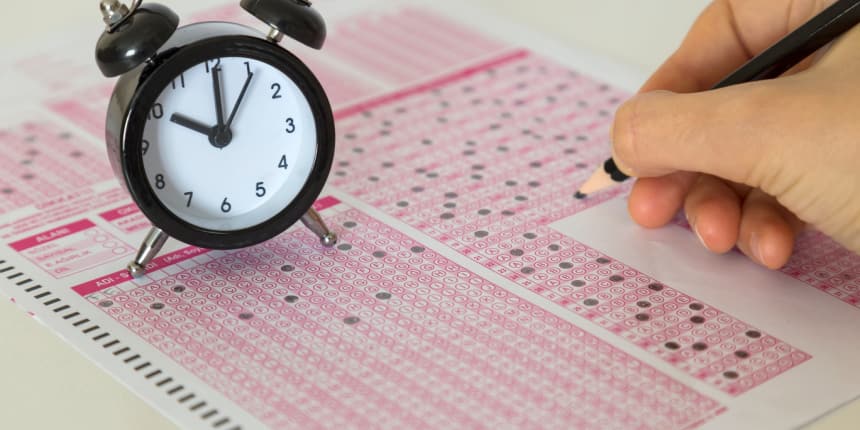NSEJS Full Form
what is the full form of NSEJS?
NSEJS is the abbreviation for National Standard Examination In Junior Science. NSEJS is a science olympiad conducted by the Indian Association of Physics Teachers(IPAT). IAPT has been conducting this exam every year for the last 35+ years. In this article, we will learn about the eligibility, opportunities, exam format, fees and importance of the National Standard Examination In Junior Science.
- what is the full form of NSEJS?
- What is NSEJS?
- Eligibility for NSEJS
- Exam pattern for NSEJS
- Exam Pattern
- Syllabus for NSEJS Exam
- Mathematics
- Physics
- Chemistry
- Biology
- Importance of National Standard Examination In Junior Science

What is NSEJS?
NSEJS is a national-level examination for Higher Secondary students. IAPT has been conducting this olympiad since 1987. IAPT has successfully conducted this exam for 35+ years in collaboration with Homi Bhabha Centre For Science Education. This exam is conducted around the month of November every year in Hindi, English and a few other regional languages.
NSEJS is considered to be the world’s most difficult exam at the higher secondary level. IAPT conducts this exam on over 1500+ centres where more than 80000 students appear in the exam every year.
Eligibility for NSEJS
To appear in the exam, the candidate should be an Indian resident above the age of 10 years. These students can participate as an individual or represent their school.
The candidate should be studying in class 10th or below. For example, to appear in 2022-2023, the candidate should be born on 31 December 2012 or before. Students who have appeared in the 10th standard examination but haven’t received the result can also apply for the Olympiad.
One of the key eligibility points to remember is that you can not participate in other exams held by IAPT in the same year you are applying for NSEJS. This means you can not apply for National Standard Examination in Astronomy, National Standard Examination in Chemistry, National Standard Examination in Biology, or National Standard Examination in Physics.
Students need to assure the Indian Association of Physics Teachers about their eligibility. If a student's information is found to be wrong at any stage of the exam, his application will be rejected immediately.
Exam pattern for NSEJS
The NSEJS exam is held in two stages. In the first stage, almost 1 lakh people from all over the country participate in the exam. Out of these students, only around 300 students are selected on the basis of merit. In case of tied ranks, all students with the same scores are promoted to appear in the second stage of the exam
Exam Pattern
The NSEJS exam consists of 80 Multiple Choice Questions
Questions are selected from Physics, Chemistry, Biology and Mathematics
For every wrong answer, there is a penalty of one mark which will be deducted from the marks of the rightly answered questions.
The examination is of 240 marks in total, which means each question is of 3 marks in the exam.
In the second stage, qualified candidates take another test which is comparably difficult to the qualifying examination. Applicants must score 50% marks in this test to clear the merit known as MAS(Minimum Admissable score). The top 35% of students among these students are trained at Indian National Junior Science Olympiad to compete in the International Junior Science Olympiad. A team of six members are chosen from the top 35% to represent India at the IJSO.
Syllabus for NSEJS Exam
The NSEJS exam is conducted in English and Hindi language. To clear this exam, students need to learn physics, Chemistry, Biology, and Mathematics. Here is a detailed syllabus for every subject:-
Mathematics
|
Physics
|
Chemistry
|
Biology
|
Importance of National Standard Examination In Junior Science
Students are provided with an opportunity in participate in worldwide Olympiads.
If students take the NSEA test after NSEJS, they might qualify for a 75% scholarship for their higher studies.
The National Toppers in each subject are rewarded with compensation and a special merit certificate.
The top 1% of applicants in every subject in each state are awarded honoured certificates.
The top 10% of each centre are also awarded a certificate to acknowledge their efforts and knowledge.
Frequently Asked Questions (FAQs)
NSEJS stands for National Standard Examination In Junior Science.
Participants must score between 70-85 out of 240 marks to move to the next exam level.
Yes! ⅓ mark for every wrong answer will be deducted from the total score.
The NSEJS exam is two hours duration.
Once the form is submitted after the fee completion, no changes can be made to the application.

